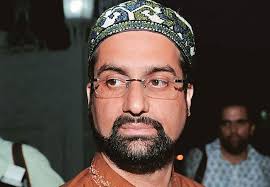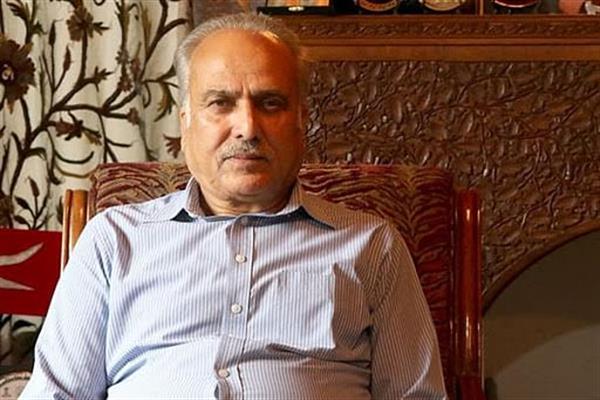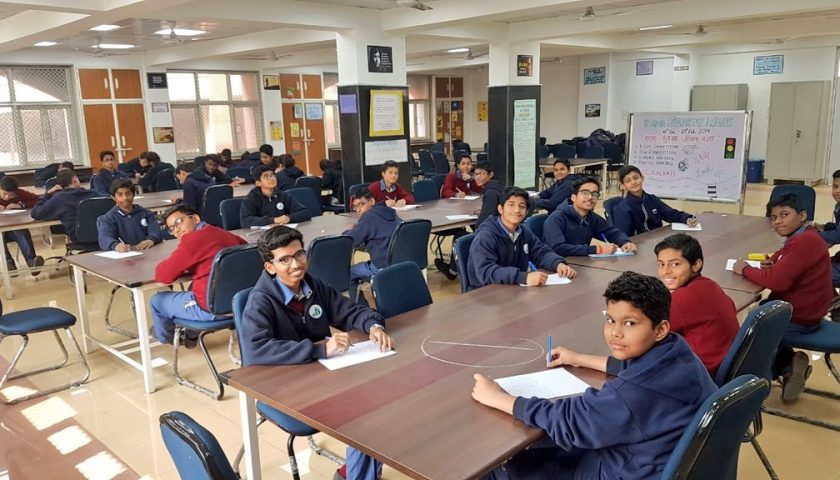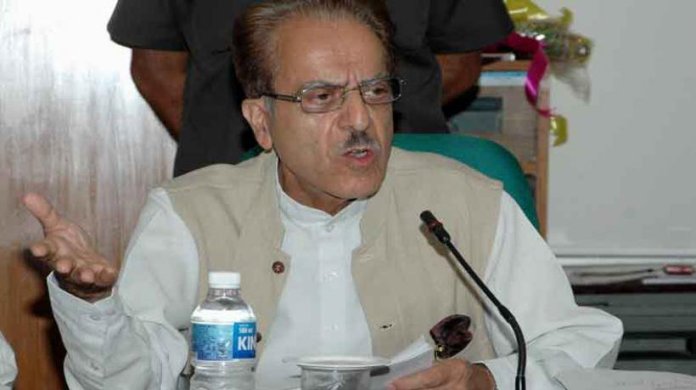Mirwaiz Umar Farooq, who heads his faction of the Hurriyat Conference, has been continuously under house arrest for the past two months. He is considered a moderate separatist leader, but he has turned a hardliner now as the Union government continues not to listen to the voice of Kashmiris. In this interview, he expresses his frustration. Excerpts:
Why do you think the situation erupted like this?
It was the most obvious reaction to the kind of provocations that the people of Kashmir were being routinely subjected to since the infamous PDP-BJP [People’s Democratic Party-Bharatiya Janata Party] government was patched up two years back. Policies like the formation of Sainik Colonies, separate townships for Kashmir’s migratory population, settlement of West Pakistan refugees in the State, land allotment to slum-dwellers from outside the State, a controversial industrial policy, and a Sanskrit script for the Kashmiri language were being vehemently pursued with the aim to gradually change the demographic composition and majoritarian profile of the State, dilute its special status and ultimately assimilate it with the Indian Union.
The BJP-RSS [Rashtriya Swayamsewak Sangh] stand on Jammu and Kashmir is well known to the people of Kashmir, and it is the Centre’s writ that always runs in the Valley as the local partner is a mere rubber stamp, an eyewash. The fear among the people was not about whether these policies would be implemented but when. As a consequence, one spark ignited the mass resentment and agitation.
Are you not worried that Kashmiris are now rallying behind those who espouse violence as a means to achieve the political goal?
But India does not acknowledge our political goal, our political aspirations, which is precisely why our youths are being pushed to a path which no one wants them to take and even they wouldn’t want to follow. It pains us to see them holding guns instead of books. Bright young fellows, the future of our nation. The nation identifies with them, it sees them as idealists, as freedom fighters. And when their dead bodies come home the groundswell of support and emotion is natural.
What role are you playing to bring back the situation?
Bring back the situation to what? To the so-called normalcy enforced through the barrel of the gun, which actually is an uneasy calm, a lull. And then there is a storm, and we are butchered. Kashmir is the world’s highest militarised zone where there is one soldier to six civilians. We don’t want the status quo. We don’t want to live life like this. We want real peace, a lasting peace that will only come with a lasting solution to the problem. We equally want peace and prosperity for the whole region.
Do you think that to call for strikes is the solution?
It is no solution to the Kashmir issue. But it is the only form of protest left with us. How else do we protest and show our resentment against the murder of our civilians? All other forms of protest are disallowed and crushed by force and restrictions. We are not even allowed to assemble and mourn our dead who are mercilessly killed in indiscriminate firing by the forces in their homes or when they are protesting against the death of civilians. Suppression has touched a new height as communication lines, internet services, social media and newspaper publications are also banned in the current revolt.
It seems that even the separatist leadership is not in control of the situation. The youths seem to be fed up with you as well.
We have also not been very effective in reaching out and connecting as we are constantly caged and confined to our homes or put in jails. The aggression and assault against the people by the ruling regime has gotten more and more pronounced and brazen by the day. The fifth generation of Kashmiris is now embroiled in a conflict that it inherited from its predecessors, a baggage of history passed on to it.
The first people’s uprising against the autocratic Dogra rule started in 1931 before both India and Pakistan were born. For them, it’s enough is enough. It’s a do-or-die situation and they are fed up with subjugation and the status quo.
New Delhi is in no mood to move in a direction you want it to. Where to go from here?
For us the going has always been tough. New Delhi knows what the actual problem is but its intransigence and unwillingness to accept it, compounded by its internalised propaganda, has always been the main hindrance in finding a solution to the issue. Otherwise every problem has a solution. What is needed is boldness to take the call.
For us, in the meantime, a firm belief in the justness of our cause, sacrifices, patience and perseverance, which is the hallmark of freedom struggles, is something we will have to continue to exhibit till we achieve our goal.
Kashmir needs a solution. How is that possible?
Kashmir is a political problem and hence the solution has to be political. It is the issue of the basic political right of people, the right to decide and execute their political choice and will for their homeland. A right given to all nations and exercised by all the nations across the world. A right both people of India and Pakistan got in 1947 and promised for the people of Jammu and Kashmir at the United Nations, which the U.N. ratified.
We believe the solution lies in fulfilling this promise. Another way to resolve the problem is through unconditional and meaningful engagement among the three stakeholders, i.e., India, Pakistan and the main party, the people of Jammu and Kashmir, in a sincere and trustworthy environment.
New Delhi says that Pakistan is adding fuel to the fire by calling for “Black Day,” etc.
Why is there a fire in the first place? What has caused and led to it? These are the questions New Delhi needs to seriously ask and sincerely introspect. Shifting blame on others to escape responsibility and to hoodwink the people of India and the international community by this rhetoric will be, and is proving to be, a failed strategy.
They also say that youths are indulging in violence, attacking police stations and provoking the police to open fire.
The youths are angry, exasperated. They want a solution. Maybe some of them are expressing their emotions in such a manner. It shows the extent to which they have become fearless and even ready to die rather than live a life of subjugation and humiliation.
Are you ready for an unconditional dialogue?
As I mentioned earlier, in principle we believe that either holding of referendum in the whole State as it existed on August 14, 1947, guaranteed by the U.N., or unconditional dialogue among the three parties, India, Pakistan and most importantly the people of J&K, is the way forward towards reaching a final settlement of the issue. But our experience of 2004 to 2006, when we entered into unconditional dialogue despite heavy odds with both India and Pakistan and the way India backtracked and abandoned it suddenly, makes us once bitten, twice shy. We will tread this path very cautiously now.






